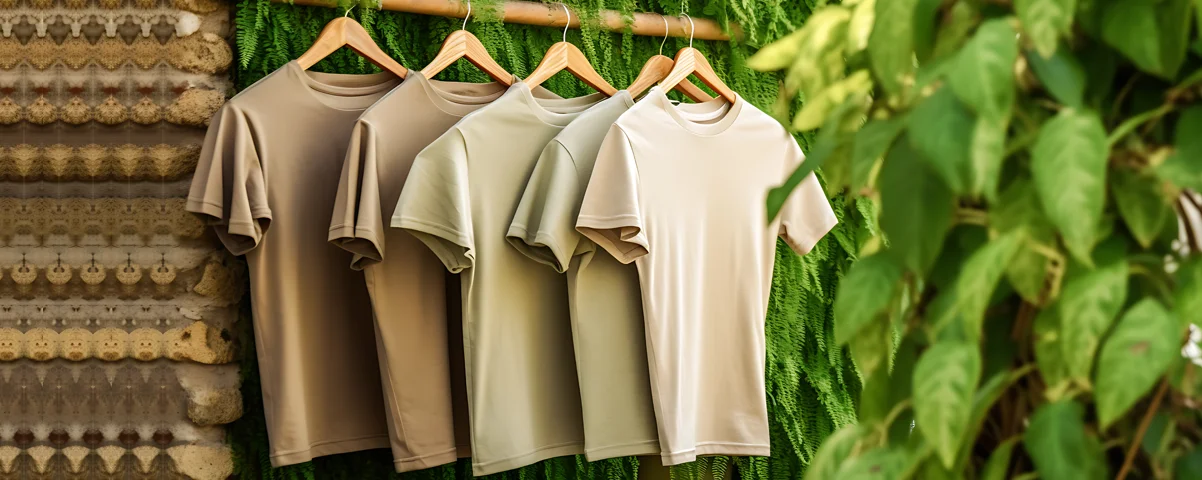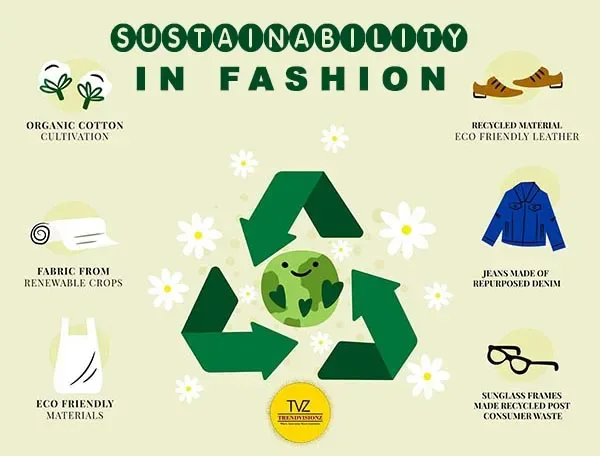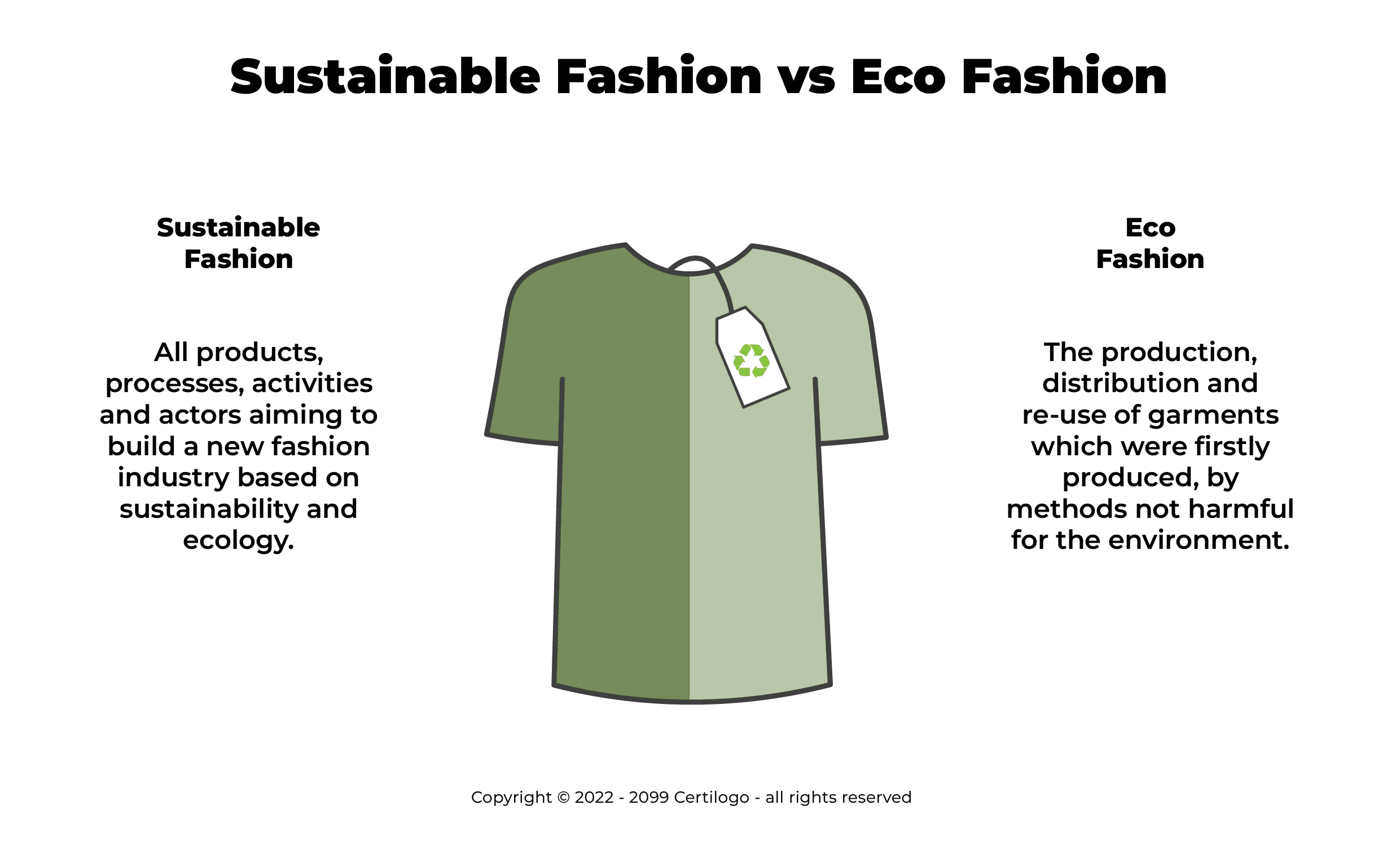Cape Town Sustainable Fashion: Redefining Style with Moral Options
Cape Town Sustainable Fashion: Redefining Style with Moral Options
Blog Article
Keep Ahead of the Curve by Discovering Innovative Style Fads
In an industry as dynamic as style, remaining ahead includes even more than simply following existing trends-- it demands an expedition of advancement. Smart textiles, as an example, are changing garments into useful work of arts, while 3D printing is changing layout processes with its customizable, waste-reducing capabilities. As sustainability comes to be a cornerstone, technologies like environment-friendly products and round fashion practices are reshaping ecological responsibility - Cape Town Sustainable Fashion. Moreover, the convergence of innovation and fashion heralds a brand-new period of consumer involvement. Just how, then, can these arising patterns redefine the future of style, and what implications do they hold for brand names seeking to flourish in this developing landscape?

Welcoming Smart Textiles
Recently, the apparel industry has seen a transformative shift with the assimilation of wise textiles, a sophisticated innovation that mixes technology with fabric. This development stands for not only a fusion of visual appeals and capability but also a considerable leap towards sustainability and personalization in fashion. Smart fabrics, also referred to as e-textiles, installed innovative electronics such as sensing units and conductive threads within the material, allowing garments to interact with the atmosphere or the user.
These textiles are made to monitor physiological criteria, such as heart price or body temperature, giving real-time wellness analytics. Past health and wellness applications, clever fabrics are likewise being made use of for flexible apparel, which can alter color or pattern in feedback to ecological stimulations, therefore providing a dynamic fashion experience.
Furthermore, the advancement of energy-harvesting textiles that create power from motion or sunlight is leading the way for self-sufficient wearable modern technology. This advancement is appealing to eco conscious customers and developers intending to minimize the eco-friendly impact of fashion. As r & d in this area breakthrough, smart textiles are expected to come to be increasingly prevalent, reshaping the landscape of contemporary style with their multifunctional capacities.
The Surge of 3D Printing
Transforming the production landscape, 3D printing has actually emerged as a game-changer in the apparel industry. This sophisticated innovation has made it possible for developers to press the boundaries of imagination, creating complex and personalized garments that were formerly inconceivable. By leveraging electronic design and additive production, 3D printing facilitates the development of intricate geometries and patterns, permitting developers to trying out new textures and structures.
A significant benefit of 3D printing in fashion is its ability to generate on-demand, lessening waste and decreasing stock requirements. This efficiency not only maximizes manufacturing procedures however also permits rapid prototyping, enabling developers to bring their visions to life in a much shorter timeframe. Furthermore, 3D printing sustains personalization to a level unrivaled by traditional techniques, providing tailored fits and distinct layouts tailored to individual consumer preferences.
The rise of 3D printing has actually additionally democratized fashion, making it obtainable to arising designers that can now make high-grade items without substantial monetary investment in traditional manufacturing facilities. As innovation proceeds to development, the apparel industry is poised to harness the complete capacity of 3D printing, discovering brand-new products and strategies that will definitely redefine exactly how style is developed and generated.
Sustainable Fashion Developments
As the apparel industry grapples with the pushing look at these guys demand for ecological responsibility, lasting style technologies have actually arised at the forefront of transformative adjustment. The growing understanding of ecological influence has fueled a change in the direction of even more eco-conscious practices and materials. Designers and brand names are now focusing on sustainability, incorporating approaches that lessen waste and decrease carbon footprints.
One substantial advancement is the surge of circular fashion, which highlights recycling and upcycling to expand the lifecycle of garments. This strategy not just reduces waste but additionally encourages consumers to adopt a more conscious strategy to apparel consumption.
Another breakthrough exists in the fostering of cutting-edge dyeing techniques that utilize waterless procedures or natural dyes, thus minimizing the huge amounts of water and chemicals traditionally used in textile dyeing. In addition, improvements in biotechnology have actually caused the development of lab-grown natural leather and fabrics, supplying ecologically friendly and cruelty-free options to traditional products. Via these introducing efforts, the apparel industry is making meaningful strides in the direction of an extra sustainable future.

Tech-Integrated Apparel
Tech-integrated apparel represents a groundbreaking combination of style and modern technology, reshaping just how people communicate with their clothing. This ingenious domain is noted by the incorporation of smart fabrics and embedded electronic components, boosting both capability and aesthetic allure. From health and fitness trackers installed in sportswear to warmed coats controlled by means of smart device apps, tech-integrated apparel provides customers extraordinary convenience and adaptability.
Introducing brands are driving this fad, concentrating on developing garments that react to ecological stimulations or individual commands. As an example, some garments can alter color or pattern in feedback to temperature level shifts, while others integrate biometric sensors to keep track of wellness metrics like heart rate or tension levels. The smooth combination of modern technology right into fabrics likewise reaches ecological sustainability, with initiatives to develop self-cleaning fabrics or garments that adapt to weather, therefore decreasing the need for multiple layers.
Furthermore, the arrival of wearable modern technology is not just restricted to garments yet encompasses accessories like watches and glasses, more broadening the range of tech-integrated style. As the market proceeds to introduce, the potential for modification and personalization in clothing expands, using consumers one-of-a-kind, tech-enhanced fashion experiences that satisfy their individual needs and choices.
Future of Virtual Style
Over the last few years, the future of online style has actually become a transformative pressure within the market, leveraging improvements in electronic modern technology to redefine how style is created, experienced, and eaten. By incorporating enhanced truth (AR), online truth (VIRTUAL REALITY), and 3D style devices, designers can currently craft interactive and immersive experiences that transcend standard style boundaries. Digital fashion permits for the creation of garments that exist solely in electronic Check Out Your URL environments, supplying endless possibilities for innovation without the restrictions of physical production.
This digital change not just presents opportunities for creative expression but likewise addresses sustainability problems intrinsic in conventional fashion techniques. Cape Town Sustainable Fashion. By eliminating the need for physical sources, digital style decreases waste and reduces carbon impacts. Furthermore, the surge of virtual fashion lines up with the raising customer need for individualized and unique experiences, as digital garments can be customized and customized to private preferences with ease

Conclusion
The fashion industry's future lies in the integration of innovative modern technologies and sustainable techniques. Virtual style is positioned to redefine consumer communications.
In recent years, the fashion sector has actually witnessed a transformative shift with the combination of clever fabrics, a sophisticated technology that blends technology with textile.As the fashion industry grapples with the pressing need for ecological duty, sustainable fashion advancements have emerged at the leading edge of transformative adjustment.In recent years, the future of virtual fashion has arised as a transformative force within the industry, leveraging innovations in digital technology to redefine just how style is developed, experienced, and consumed. The rise of digital style straightens with the enhancing consumer need for unique and individualized experiences, as online garments can be personalized and customized to private choices with convenience.
The fashion sector's future lies in the combination of sustainable go techniques and cutting-edge modern technologies.
Report this page